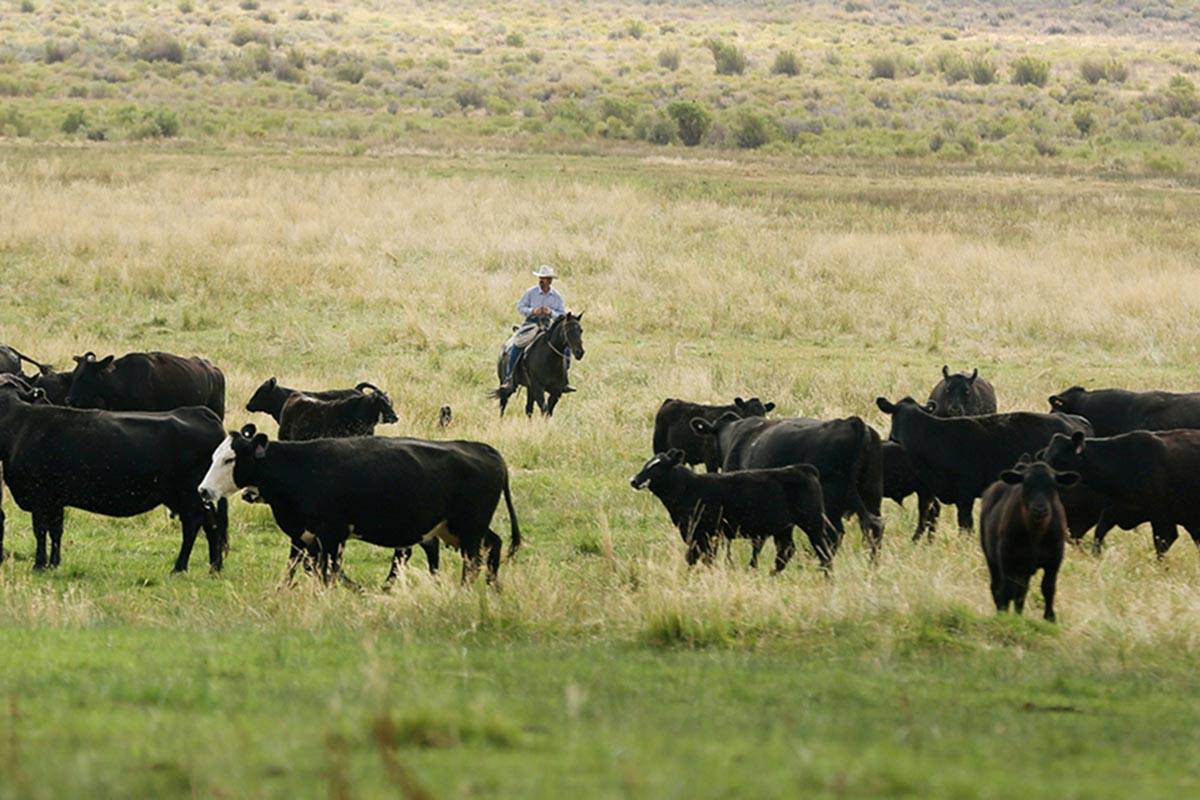COMMENTARY: The future of Nevada’s family-owned ranches and farms is in jeopardy
Throughout the pandemic, many of the major headlines about Nevada’s economic struggles focused on the massive hit to Las Vegas — and rightly so. The tourism, gaming and entertainment industries provide more than 315,000 jobs in the state. But there is another critical industry in the Silver State that has been overlooked and underappreciated as our communities continue to recover from COVID-19.
Ranching and farming has long been the economic cornerstone of Nevada’s rural communities, bringing in more than $760 million annually in cash receipts and serving as a much-needed source of tax revenue and jobs. Just as it did for the tourism industry, COVID created unprecedented hardships and uncertainty for Nevada’s family-owned cattle ranching operations, many of which have proudly been in the same family for generations. The same is the case for family farmers raising crops and those involved in dairy production.
But without support from our elected leaders, their future legacy — and the jobs connected to them — are in jeopardy.
Instead of making it easier for Nevada’s ranchers and farmers to do business, politicians in Washington are doing the opposite and proposing a new tax on the transfer of a family-owned business from one generation to the next.
When President Joe Biden rolled out his ambitious $1.8 trillion American Families Plan this past April, he promised that it would be paid for exclusively by raising taxes on the rich — no middle-class families would be impacted. But one of the tax proposals included was Senate legislation known as the STEP Act. This legislation changes the way capital gains are assessed on all inherited assets and estates — such as a family-owned ranch — by eliminating a provision called “stepped-up in basis.” This tax provision has been essential for middle-class ranchers, farmers and small businesses who need to lower their tax burden when passing down the family business to their children.
To better understand this, consider the following example: Let’s say there is a rancher who took out a loan in 1970 to buy a $100,000 cattle ranch, and today the ranch is worth $2 million. Under current law, when the rancher dies, his children can inherit the business at today’s market value of $2 million. The IRS “steps up” the cost basis for the rancher’s children when they inherit the ranch so that they do not have to pay capital gains taxes on the increased value of the ranch dating to 1970. And why should they? If the rancher’s children take up the family business, why should the IRS treat it as if a transaction took place?
The STEP Act would eliminate this practice and force inheritors to pay a retroactive capital gains tax on past transactions of the dead, even those which may have occurred a lifetime ago. This new tax, which has already earned the nickname, “the zombie tax,” would force the children of the rancher in the above example to pay the IRS an estimated $350,000 just to keep their own family business. Most ranch and farm operations are extremely capital intensive. They may be land rich, but they are cash poor. If the inheritors of a family-owned ranch do not have the cash to pay for the zombie tax, they would sell the business.
A new study illustrates the devastation this proposal would have on America’s farms and ranches. Texas A&M’s Agricultural and Food Policy Center maintains a database of 94 representative farms in 30 different states. According to their economic simulations, only two of the 94 representative farms in their database would be impacted under current tax laws by an event triggering a generational transfer. “By contrast,” center found, “under the STEP Act, 92 of the 94 representative farms would be impacted, with additional tax liabilities incurred averaging $726,104 per farm.”
President Biden’s tax proposals are going to hit middle-class families the hardest. The hard-earned livelihood of Nevada’s ranches and farms should not be on the chopping block to pay for trillions in new government spending.
Nevada’s congressional delegation must represent all Nevada’s businesses, including our farms and ranches. Our representatives in Washington, D.C. — including my own, Rep. Steven Horsford, who has been silent on this issue despite serving on the powerful House Ways and Means Committee, which has jurisdiction over tax policy — need to stand up for their constituents.
Generations of Nevada ranchers have poured their blood, sweat and tears into building businesses that they can leave behind for their children. I am asking our members of Congress to support them.
Bevan Lister is president of the Nevada Farm Bureau and a Lincoln County commissioner.






















